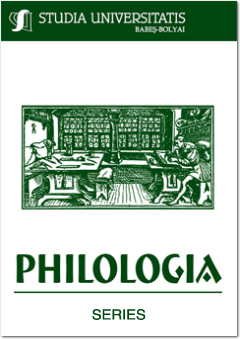LA THEORIE DES COGNEMES ET LES LANGUES ROMANES: L’ALTERNANCE I/A DANS LES MICROSYSTEMES GRAMMATICAUX DE L’ESPAGNOL ET DE L’ITALIEN
THE THEORY OF COGNEMES AND ROMANCE LANGUAGES: ALTERNATING I / A IN THE GRAMMATICAL MICROSYSTEMS OF SPANISH AND ITALIAN
Author(s): Didier BottineauSubject(s): Language and Literature Studies
Published by: Studia Universitatis Babes-Bolyai
Keywords: cognemes; meaning construction; Romance languages; vowel alternation.
Summary/Abstract: According to the Theory of Cognemes, in many typologically unrelated natural languages, the phonological form of grammatical morphemes is symptomatic of semantic dynamic processes executed by the interpreter in the course of meaning construction: the core value of the signified is structurally related with the sensitive experience of the articulatory gesture mobilized on the side of the signifier. This case study presents the role and workings of the i/a alternation in Spanish and Italian in several grammatical systems: adverbs of spatial location aquí / qui, acá / qua, allí / lì, allá / là and prepositions (Italian di et da).
Journal: Studia Universitatis Babes-Bolyai - Philologia
- Issue Year: 54/2009
- Issue No: 3
- Page Range: 125-151
- Page Count: 27
- Language: French

